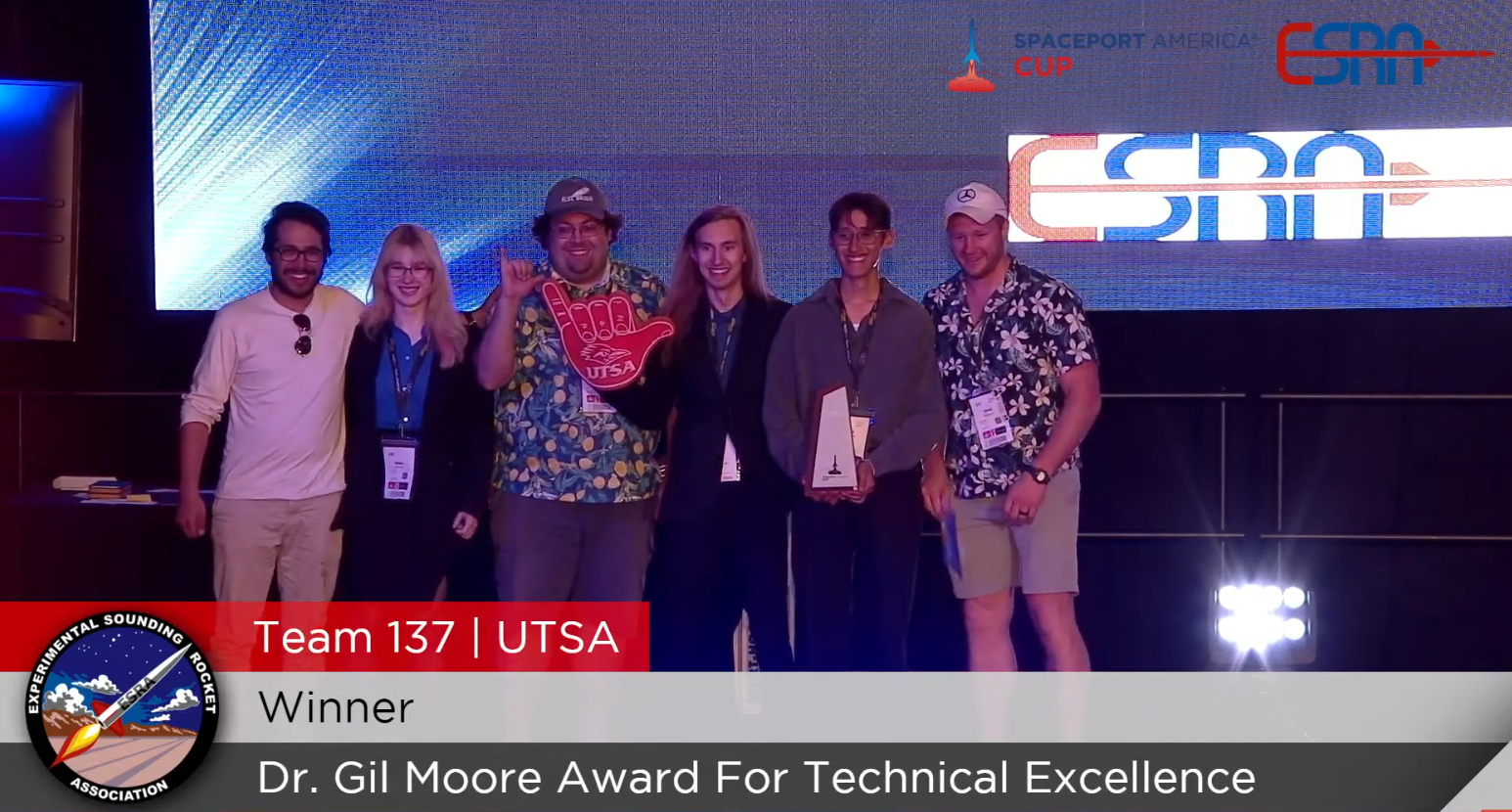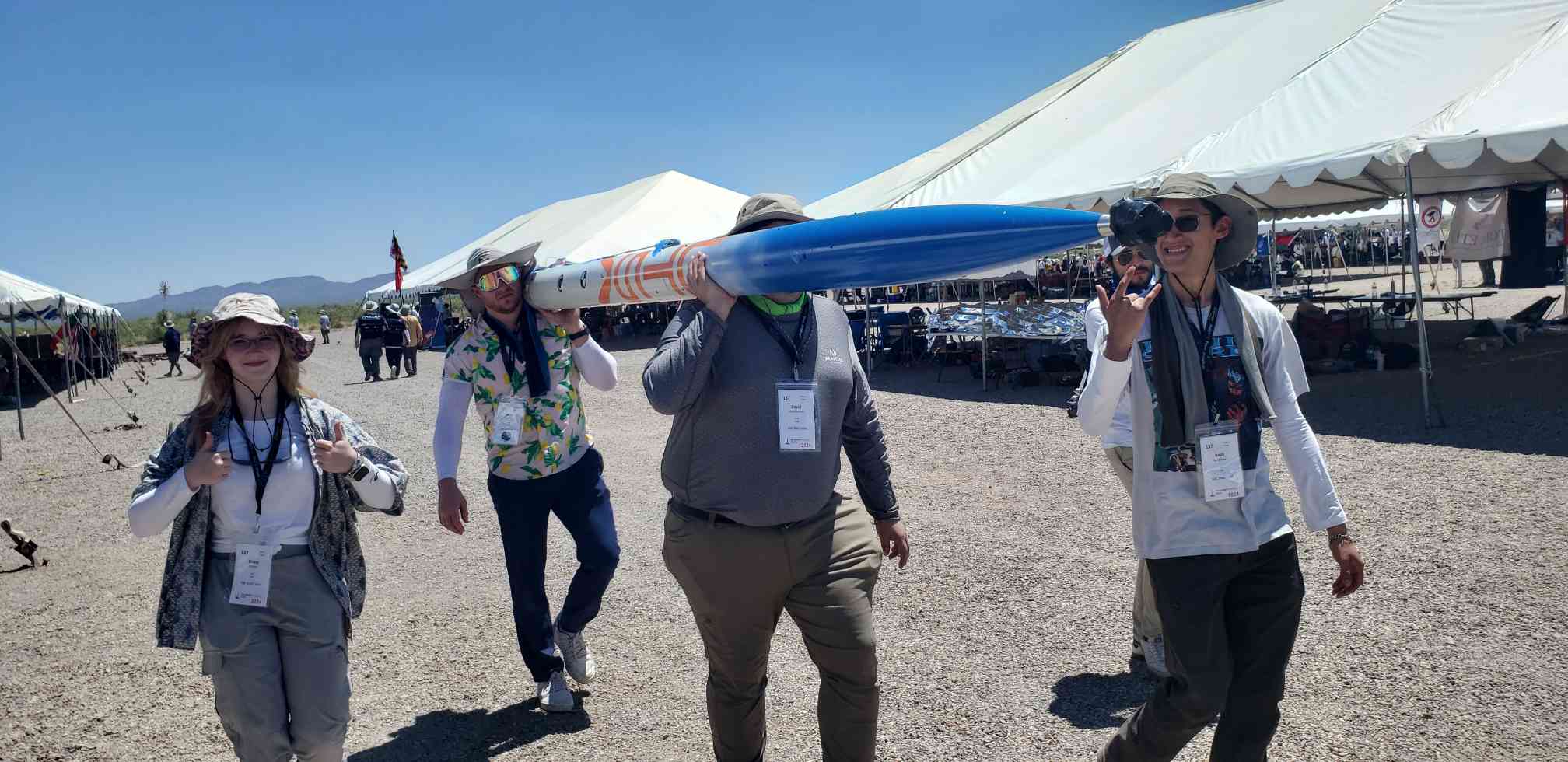Posted on July 11, 2024 by Sean M. Wood

UTSA receives technical excellence award at ESRA competition
UTSA Aeronautics and Rocket Club President Haven Russell said the group had one goal for the annual Spaceport America Cup in the New Mexico desert. They wanted to launch and recover their vehicle successfully.
They did that and brought home an award, though not for the rocket launch. The vehicle’s GPS went out, and the team lost it in the clouds. The ARC spent 20 hours combing the New Mexico desert for the vehicle over the next three days.
“Unfortunately, we recovered it past the deadline to submit flight data, so we didn’t get our flight scored,” Russell said. “But we were happy just to find it.”

Securing Some Hardware
Russell and teammate Grace Zimmer helped ensure the team didn’t go home without a win. The duo earned the Dr. Gil Moore Award for Innovation. They gave a presentation on their work in the lab of Dr. Daniel Pineda, an assistant professor of mechanical engineering. The presentation was on using laser spectroscopy to measure and estimate propellant.
“We worked with Dr. Pineda and the graduate students in his lab to measure the temperatures of our smaller engines,” Russell said. “It’s nearly impossible to record temperatures in a traditional manner. It’s a fun passion project.”
Underdogs
This was their third trip to the collegiate competition, which attracts at least 150 teams from around the world annually. These teams typically have at least 20 members, while UTSA has six.
“We’re very much an underdog team and have been since we started doing this,” Russell says. “But we’re not afraid to take on the big challenges.”
Upping the Ante
The team entered the solid rocket propellant category in 2022, its first year of competition. According to Russell, you light it, and it launches.
But the team “upped the ante with a two-stage vehicle. We had electronic issues and were unable to launch. It was our first time going, and we were kind of bummed out,” Russell says.
They made an even more complex rocket with hybrid fuel for the 2023 competition. Despite “a couple of successful tests,” they were again unable to launch.
Third Time’s a Charm
“This year we decided the smartest thing to do was enter with the most complex vehicle,” Russell says sarcastically.
The category was Student Research and Design/30,000 feet, Solid Motors. UTSA was one of only nine teams in that category. Throughout the year, it built larger and larger motors and crafted the rocket’s body in the MakerSpace.
They rented a house with a garage in New Mexico for the competition so they could continue to work on the rocket. “It was very ‘Breaking Bad,’” Russell said.
The team got the rocket to the pad for launch, but they lost it in the cloud cover. Their GPS also went out, so they could not find where it landed. The team spent close to 20 hours trying to find their vehicle.
“It was not a week without difficulties,” Russell said. “Some things weren’t ideal, but no one is walking away upset. The future looks bright for ARC. Not just with a good launch under our belt but with an award as well. There’s a lot more interest in ARC as the last three years of hard work and dedication are starting to pay off.”

